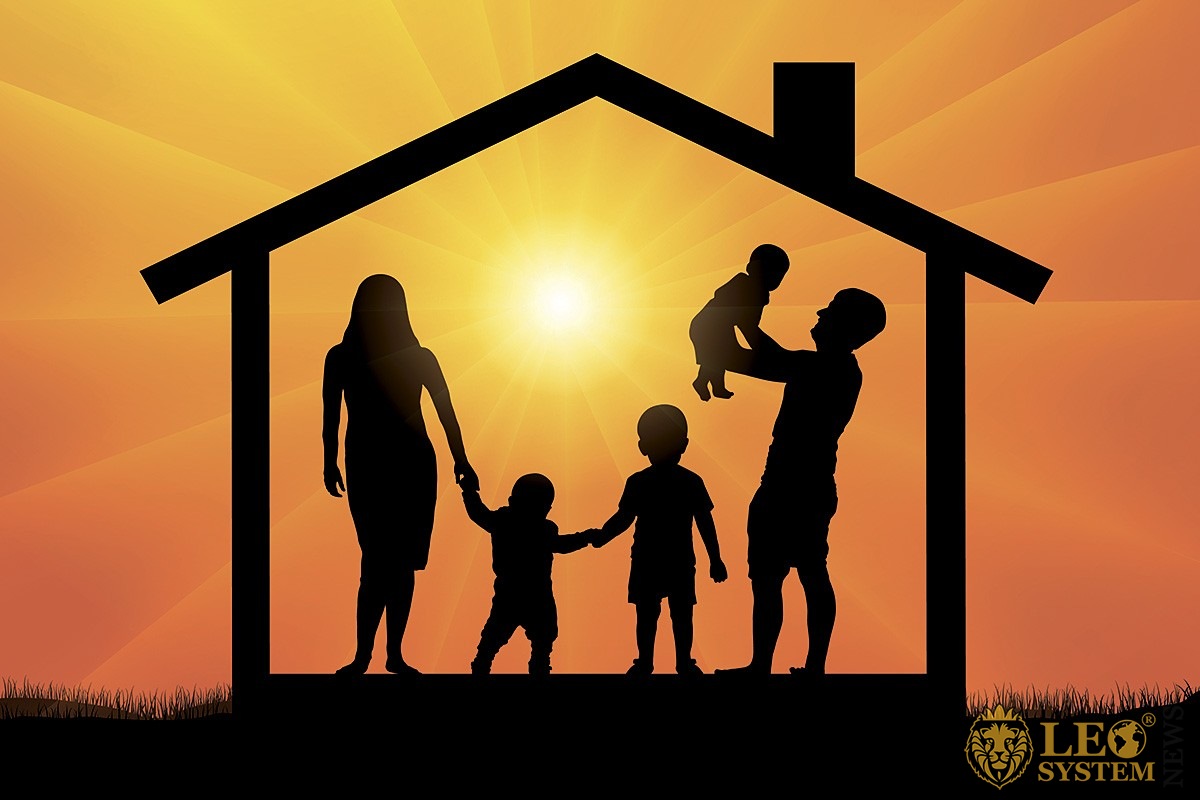Every family is different as they have different values, morals and traditions. These are made up of social standards and religious customs that a family follows and uses as a basis for raising children. Usually, these are values passed down from generation to generation, and they consist of rules that govern our life in three dimensions; namely, work, play and love.
We need to have a balance among all these dimensions in order to fulfill our family values. How we must spend our marital life, what kind of communication channels are available to us and what our religion will be are few of the questions that are answered by family values and traditions.
In this article, we will find an answer to the question, what are family values and traditions and why they are important in life.
What are Family Values and Traditions?

Children are raised on family values. These help us to prioritize different activities in our life and assign a time slot to each activity. They also determine how a family decides to use their resources.
Family values determine our lifestyle; for example, what type of clothes should we wear, what type of friends can we have, should we pursue a specific career and who should we marry.
Family Values.
Family values are rules or principles that guide a family to live a peaceful and harmonious life. A family may decide to visit the church every Sunday and this becomes a value because they cancel all other commitments because of this rule. These values teach children responsibility and accountability. They learn to contribute to the growth of their family emotionally, spiritually and financially.
Some examples of family values include:
- Respect for the elders, especially grandparents;
- Compassion for other human beings and animals;
- Eating together as a family;
- Helping out others when they are in need;
- Responsibility;
- Kindness;
- Forgiveness;
- Fun and entertainment.
There can be traditional as well as modern family values. If you want to introduce something new to this circle, you can do so, but you will have to believe in it first before passing it over to others.
For some people, recreation and entertainment are modern family values; whereas respect, compassion and kindness are traditional values.

If a CEO of a company has been raised on the family value of fairness and justice, he or she would never discriminate among their employees. Similarly, other values help an individual to contribute positively to a society.
Religion also teaches us values to become good humans and be of value to others. If you have some values, you must practice them if you want to instill them into your children.
There are three types of values:
- Intrinsic Values – Things that are valued by someone for their own sake; for example, religion, nationality, truth, love and so on.
- Instrumental Values – Things that help us achieve our goals; for example, health, personality, self-control, patience, etc.
- Terminal Values – These are the goals that we want to achieve in life and for which instrumental values serve as an aid. Examples include independence, security, self-respect and equality.
In a person’s value system, terminal values hold the highest status. These values are important for our existence, and they are shared by an entire group or community. So, we might have other families in our group that share the same values, morals and traditions. Instrumental values, on the other hand, differ from one group to another and because of their very nature; they may give rise to conflict and disagreement?
Family Traditions.
Family traditions are ideas and attitudes that together make up a culture or environment, and these ideas come from one’s ancestors. At times, these traditions are so strong that they become spiritually important for generations to come. They are handed down like rituals or religious beliefs.
Families take pride in their traditions because these ideals define who they are and where their roots come from. They also serve to distinguish them from other families or find a match when they need to get married.
Family values and traditions are inter-related because a family uses its ideals to inculcate moral values into their children and raise them according to their own principles. You can’t teach something to your children that you yourself don’t believe in.
It is therefore important to take up family values that hold importance for you and hand them down to the next generation in their true essence. Family traditions that are not meaningful to one generation will not be passed down because they are not valued as they should be.

Some of the values may become traditions if they are practiced religiously. For example, some families may decide to offer volunteer work as a tradition, so this work actually becomes their value as well as a tradition. For some people, it may not be as important, but for others it could a terminal value.
Conclusion.
The value system is important both for the family as a whole and for the individual. Values help us make decisions, control behavior and provide motivation. In addition to the family traditions, other factors that influence values include your friends, your education, role of media in your life, religious beliefs that you acquire over time and culture of the society where you live. Family values are learned by watching your elders practice them.
What are family values and traditions is something both parents need to discuss so that those values could be taught to the children. Traditions are something that is passed down from generations, and they are directly related to values. Some modern family values like volunteering to help others around you or pursuing a specific career often become family traditions.
It is a tradition in some families that their firstborn child would be called by their family name. It might not have any significance, but it could serve to distinguish them from other families. Some values may change or evolve over time, but others remain the same. If you want to instill certain values into your offspring, then you must practice them yourself.
Read an interesting post: What Are the Causes of Family Crisis?
































